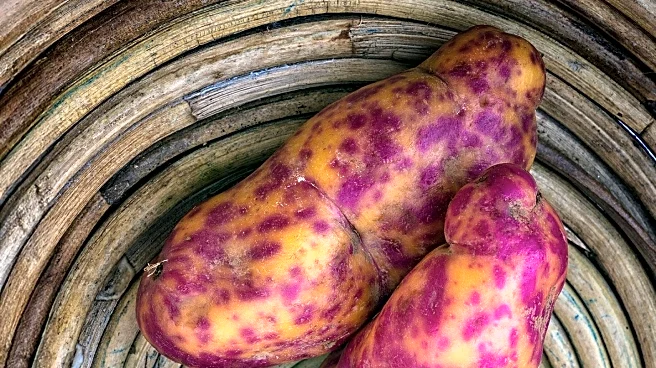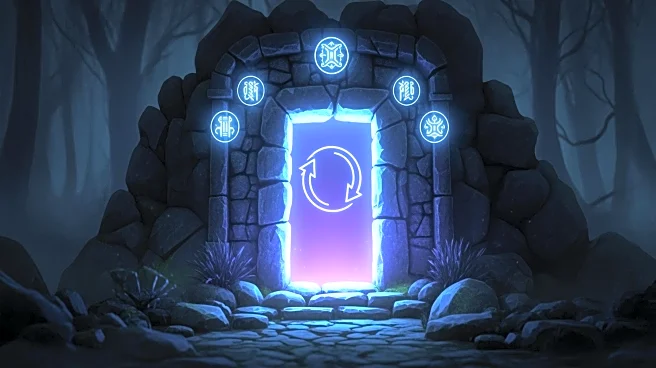What is the story about?
What's Happening?
New research published in Nature Communications reveals that certain breast cancer tumors may utilize neighboring fat cells as an energy source, potentially explaining the link between obesity and increased breast cancer risk. The study focuses on triple-negative breast cancer, which is aggressive and has lower survival rates. Researchers found that tumor cells access fat cells' lipids by forming straw-like structures, known as gap junctions, to extract energy. Blocking these structures in experiments halted tumor growth, suggesting a potential treatment pathway. The study involved both human tissue and mouse models, demonstrating that inhibiting gap junction formation could impair tumor progression.
Why It's Important?
This discovery is crucial as it provides insight into the mechanisms by which aggressive breast cancer tumors grow and sustain themselves. Understanding how tumors exploit fat cells for energy could lead to new therapeutic strategies aimed at starving cancer cells by preventing lipid access. This research highlights the importance of addressing obesity as a risk factor for breast cancer, potentially influencing public health recommendations and treatment approaches. It also opens avenues for developing drugs that target gap junctions, offering hope for improved outcomes in patients with triple-negative breast cancer.
What's Next?
Further research is needed to explore the applicability of these findings in human clinical settings. Clinical trials may be conducted to test drugs that inhibit gap junction formation, assessing their effectiveness in reducing tumor growth. Healthcare providers might emphasize weight management as part of cancer prevention strategies, encouraging lifestyle changes that reduce obesity-related risks. Collaboration between researchers and pharmaceutical companies could accelerate the development of targeted therapies, potentially transforming treatment options for aggressive breast cancers.
















